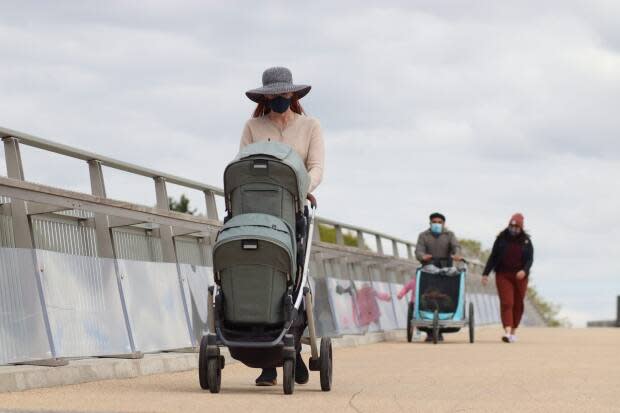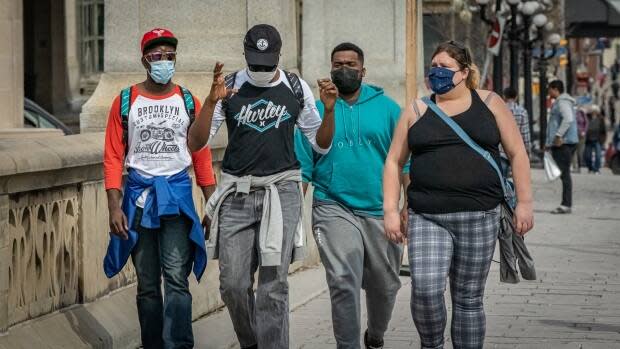When will things go back to normal?

With Canada's vaccination campaign ramping up, especially with millions of doses set to arrive this month, people are wondering — when will life go back to some kind of normal?
This week, CBC Ottawa asked experts to answer five questions that may be on people's minds.
When can we travel overseas again?
One Ottawa travel agency says newly vaccinated people have been booking vacations for as early as September to places like Cuba and Mexico.
"It's been related to the actual vaccination rollout, for sure. People just think that they're going to be vaccinated by September, so that they're going to be safe to travel after that," said Centrum Travel-CWT Vacations president Carolyn Pernari.
But epidemiologist Raywat Deonandan says large-scale leisure travel globally may not return for a few years, until most countries have quashed their epidemics with vaccines.
Travel should only happen after people get their second doses, he said, so that means no voyages until the fall for many Canadians.
As for crossing the border to the U.S., if the borders reopen, travel between the two countries might be "fairly robust" by September and October, Deonandan said. That's only if both populations have low case counts and high vaccination rates.
When can we stop wearing masks?
To answer this, let's look south of the border.
The U.S. loosened up its mask-wearing rules at the end of April and is now allowing fully vaccinated Americans to ditch the mask outdoors when gathering with multiple households, and even with unvaccinated people in small groups.
More than half of U.S. adults have had at least one dose of a COVID-19 vaccine, and about 43 per cent were fully vaccinated as of Friday, according to the Centers for Disease Control and Prevention.
Compare that to here, where less than three per cent of adults are fully inoculated.

Ottawa COVID-19 modelling scientist Doug Manuel says vaccinations are the key to losing the mask.
As more people get vaccinated and case numbers are brought under control, restrictions could be loosened in stages, Manuel said.
As for whether that's scrapping outdoor masks first or reopening indoor dining, that's up to policy experts. Models for Ontario suggest cases may come down by late August "under good scenarios," he added.
When can we stop working from home?
Canada's largest employer, the federal government, says back-to-work talks aren't even on the radar.
"I certainly don't expect to see our members returning to work until we know for sure across the country ... that we have this pandemic under control," said Chris Aylward, national president of the Public Service Alliance of Canada (PSAC), which represents more than 300,000 federal public servants across the country.
Most of the union members have been working from home for the past year. And the government says it's planning to be flexible with post-pandemic work arrangements.
Business experts say some people may never completely return to in-person work. The return may also be a "great source of conflict" between employers and employees, they say.
When will the U.S.-Canada border reopen?
Foreign policy experts are speculating the border could reopen late summer or fall — but it's complicated.
The border has been closed to non-essential travel like tourism and recreation since March 2020, and the closure agreement between Ottawa and Washington is expected to be renewed on May 21.
Aaron Ettinger, associate professor at Carleton University, says once both countries sort out the public health concerns, they will have to work through the politics.
"Politically, the United States and Canada would have to get on the same page … and that would take an enormous amount of diplomatic cross-border interaction," he said.
Melissa Haussman, a political science professor at Carleton University, says both populations would not only have to achieve a certain vaccination threshold, but also be satisfied with the other's levels before engaging in discussions.
"I think that's probably a few months off," she said.
When can we go to large gatherings again?
Large outdoor festivals and sweaty concerts — which have been completely shut down in the Ottawa region for the last year — may make a comeback as early as late summer, but it depends on how badly society wants it.
Manuel, who's also a senior scientist with The Ottawa Hospital, said public health officials have to weigh two things: the risk of transmission versus how much the community values that setting.
"I think this is a bit of the math," he said. "So how quickly are we going to get back to large gatherings? If we value that a lot, we could bring that back ahead of, say, restaurants or schools."
Meanwhile, festival organizers say they're planning for concerts as early as September.
"Work is continuing on that. But we'll see where the numbers are going," said Joe Reilly, spokesperson for Ottawa's CityFolk and Bluesfest music festivals.

 Yahoo Movies
Yahoo Movies 